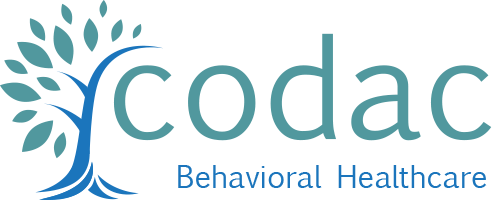Meet Maggie: 59 years old, born and raised on Aquidneck Island, married for 35 years. Maggie is the mother of two daughters and the grandmother of two young boys. She is also in long-term recovery from opioid dependency.
In 2006, after back surgery, Maggie’s doctor prescribed Vicodin for pain. Maggie felt great. “When I took the medication, everything seemed fine. I felt like I could right any wrong. And I thought I was fine because the doctor prescribed them.”
Several surgeries later, Maggie was back on Vicodin. When that was no longer enough to mitigate the pain, OxyContin was added to her prescriptions. But, the longer she was on these medications, the more she needed them. Maggie had become dependent — and addicted. And she could not break the cycle on her own.
In 2013, seven years after taking her first painkiller — “tired of the withdrawal rollercoaster and lying to [her] family” — Maggie went to detox. She’s been sober ever since. Maggie attributes her recovery to a combination of medication-assisted treatment, or MAT (she takes buprenorphine, one of three federally approved medications, along with methadone and Vivitrol), a good relationship with her doctors and therapist, and, especially, to being actively involved in the lives of her grandsons.
Maggie’s story has a happy ending. She was fortunate to have access to the resources necessary — medication, counseling, support programs — for a successful recovery. As president and CEO of CODAC Inc., Rhode Island’s oldest and largest outpatient opioid treatment center, I have seen the toll this chronic disease takes on local families. I have also seen that evidence-based, medication-assisted treatment can and does work.
The challenge is that, for treatment to work, it has to be available, accessible and affordable. Rhode Island is fortunate to have an established capacity for providing MAT services using methadone. Nevertheless, we are seeing an explosion in the number of individuals seeking treatment. At the same time, Medicaid (the source of insurance for a majority of our patients), has not raised reimbursement rates for more than 10 years.
As the cost of services has increased, this is straining the system and burdening individual providers. Two weeks ago, there was encouraging news from Washington: the Comprehensive Addiction and Recovery Act (CARA) was approved by the U.S. Senate in an astounding bipartisan vote of 94-1.
CARA is the product of exhaustive research, consultation, and outreach. CODAC is honored to have been consulted during the drafting of the bill. Its provisions address addiction across age, gender, racial, ethnic and economic demographics. With more than 25 years in this field, I have never seen a more thorough, responsible or visionary effort to address opioid addiction and overdose.
U.S. Sen. Sheldon Whitehouse, D-R.I., a crusader on this issue, is one of CARA’s two original sponsors. This bill provides crucial resources to strengthen prevention, expand treatment, enhance recovery programs, and support law enforcement and first responders in all 50 states. Most importantly, CARA would impact the lives of millions of Americans — including thousands of Rhode Islanders — their families, and communities each year.
Not so long ago, the common perception of an opioid-dependent person was a stereotype from the movies or a TV crime show. But, as anyone following the news these days knows, victims come from all walks of life. The widespread use of opioid-based medications over the past decade has accelerated and intensified the problem.
There are many Maggies out there. They are our mothers, students, teachers, brothers, children and neighbors. Their addiction is not a “weakness,” it is a chronic disease. In the same way that we provide tools to prevent and treat diabetes or high blood pressure, we must provide resources for prevention, treatment, and recovery from addiction.
In the coming weeks, the CARA will be sent to the House of Representatives for a vote. Fortunately, Rhode Island’s congressional delegation unanimously supports CARA. Nonetheless, there are ways we can help ensure that CARA becomes law: sign petitions, encourage out-of-state friends to contact their representatives, and continue to share our own stories.
Linda Hurley is the president and CEO of CODAC Inc. This article appeared in the Providence Journal.


Recent Comments